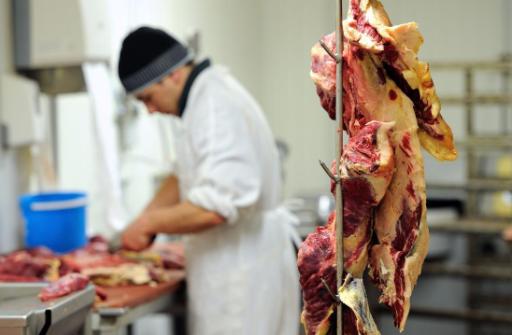Tons of meat contaminated with listeria were pulled from the Belgian market at the last minute in 2017, in a discovery which helped uncover a large-scale and illegal network of horsemeat traffickers operating in Europe, which is still under investigation.
In 2017, the Federal Food Agency for Food Chain Safety (AFSCA) discovered 3.4 tons of meat contaminated with listeria, avoiding what could have been a major listeriosis outbreak, according to the Belga news agency.
The AFSCA's finding led to the discovery of a network operating in at least five different countries and in which the investigation has so far identified 65 people, ranging from farmers to meat industry executives as well as veterinarians and slaughterhouse staff, Spanish daily El País reports.
An AFSCA inspector carrying out checks on frozen meat, which had already been shipped into Flanders from Spain, found that they were contaminated with listeria.
The discovery was made on 27 February 27 on meat which had been acquired 23 days earlier from Spanish beef producer Codelta-91, operating in Valmojado, in the province of Toledo, near Madrid.
The findings not only avoided what could have been a major listeriosis outbreak in Belgium, but also sparked an investigation, which is still ongoing, into the selling of meat of sick or dead horses —some of which was originally meant to be used as fodder for zoo animals— labelled as veal or beef.
According to the Belga news agency, the contaminated meat discovered in Flanders by the AFSCA inspector was imported into Belgium by a Dutch meat trader identified as Johannes Fasen, who has been identified by the Spanish investigation as a top figure in the illegal meat shipping network.
The investigation by Spanish authorities showed that the organisation laundered money, faked animal identity documents in order to make profitable gains, estimated at around €20 million per year, by selling chopped-up horsemeat from dead or sick animals as beef in a number of European countries.
Fasen was arrested at the start of the year over accusations that he was a central figure who sold horsemeat labelled as beef, which is more expensive, to a French meat importer, sparking a major food scandal in France in 2013.
Neither the East Flanders prosecutor — in charge of the Belgian part of the still-ongoing investigation — nor AFSCA commented.
The Brussels Times

